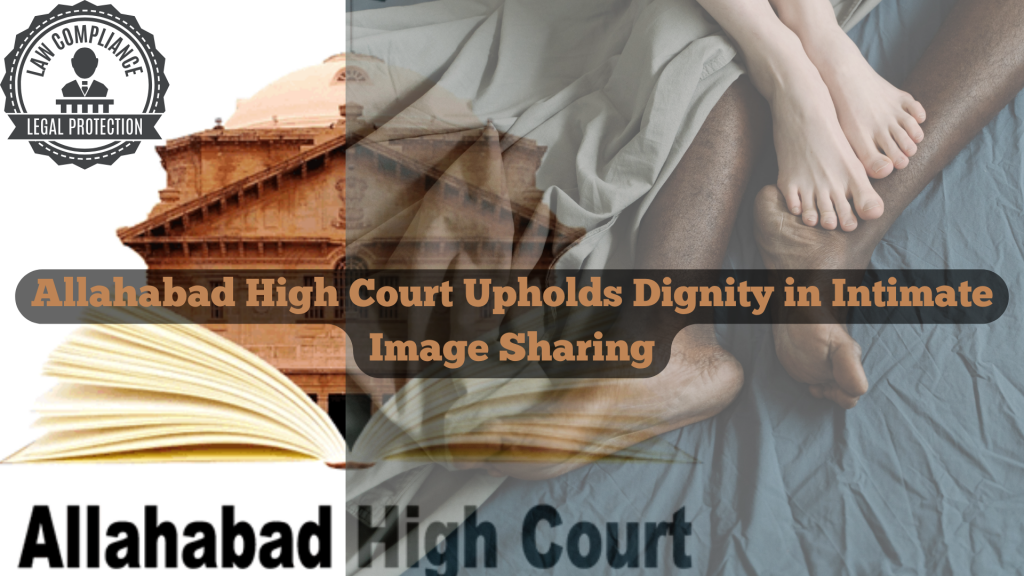
Allahabad High Court Upholds Dignity In Intimate Image Sharing
Judgement Given On : 04/10/2021
In the case of Guruvinder Singh vs. State of UP and Ors., the Allahabad High Court, in its decision on October 4, 2021, addressed the delicate matter of sharing sexually explicit images or videos that were consensually created within an intimate relationship. The court’s ruling underscored the importance of safeguarding human dignity when such content is misused for purposes of revenge or harassment.
The case revolved around a complaint filed against Guruvinder Singh, the petitioner, who was accused of rape and the creation of explicit video clips involving the survivor, with whom he had shared an intimate relationship. The survivor alleged that Singh had exploited these clips to blackmail her, leading to charges of sexual harassment, voyeurism, stalking, and outraging the modesty of a woman under the Indian Penal Code.
The matter reached the Allahabad High Court through Singh’s bail application.
Key Arguments:
- The survivor argued that Singh had taken explicit photographs and videos, which he had used to blackmail her and had also shared them with others.
- Singh’s defense asserted that the survivor was of legal age and had never voiced objections to their relationship. They contended that the relationship had been entirely consensual, with the survivor willingly engaging in a physical relationship with Singh.
- Singh’s defense further argued that the survivor had voluntarily submitted herself to the relationship, which had spanned several years without any dissent.
Court’s Observations:
- The court-initiated proceedings by underscoring the fundamental concepts of “Dignity” and “Privacy.” It referred to a pivotal Supreme Court judgment in M. Nagraj v. Union of India, emphasizing that the state’s duty extends beyond merely safeguarding human dignity; it also encompasses actively promoting and facilitating it.
- Concerning “Privacy,” the court cited the Supreme Court’s ruling in K.S. Puttaswamy v. Union of India, which unequivocally upheld every individual’s inalienable right to preserve a private space in which their personality can flourish. This right to privacy encompasses personal choices and decisions.
Court’s Decision:
In light of the aforementioned observations, the court pronounced that the sharing of sexually explicit images or videos created by one partner within the confines of an intimate relationship, with the knowledge and consent of the other, should never be weaponized for purposes of revenge or harassment. Such actions inflict significant harm on the dignity of the individuals involved.
The court also made it clear that it could not turn a blind eye to such cases. As both a protector of fundamental rights and parens patriae, the court committed itself to upholding the rights of the affected party and taking stern measures against those responsible for such actions. The court underscored that any act infringing upon the modesty of a woman and misusing her images in the digital realm runs counter to the broader objective of shielding women from exploitation and blackmail.
Given that the petitioner had yet to respond to the allegation of sharing and circulating the victim’s photographs, the court found it appropriate to reject the bail application.
